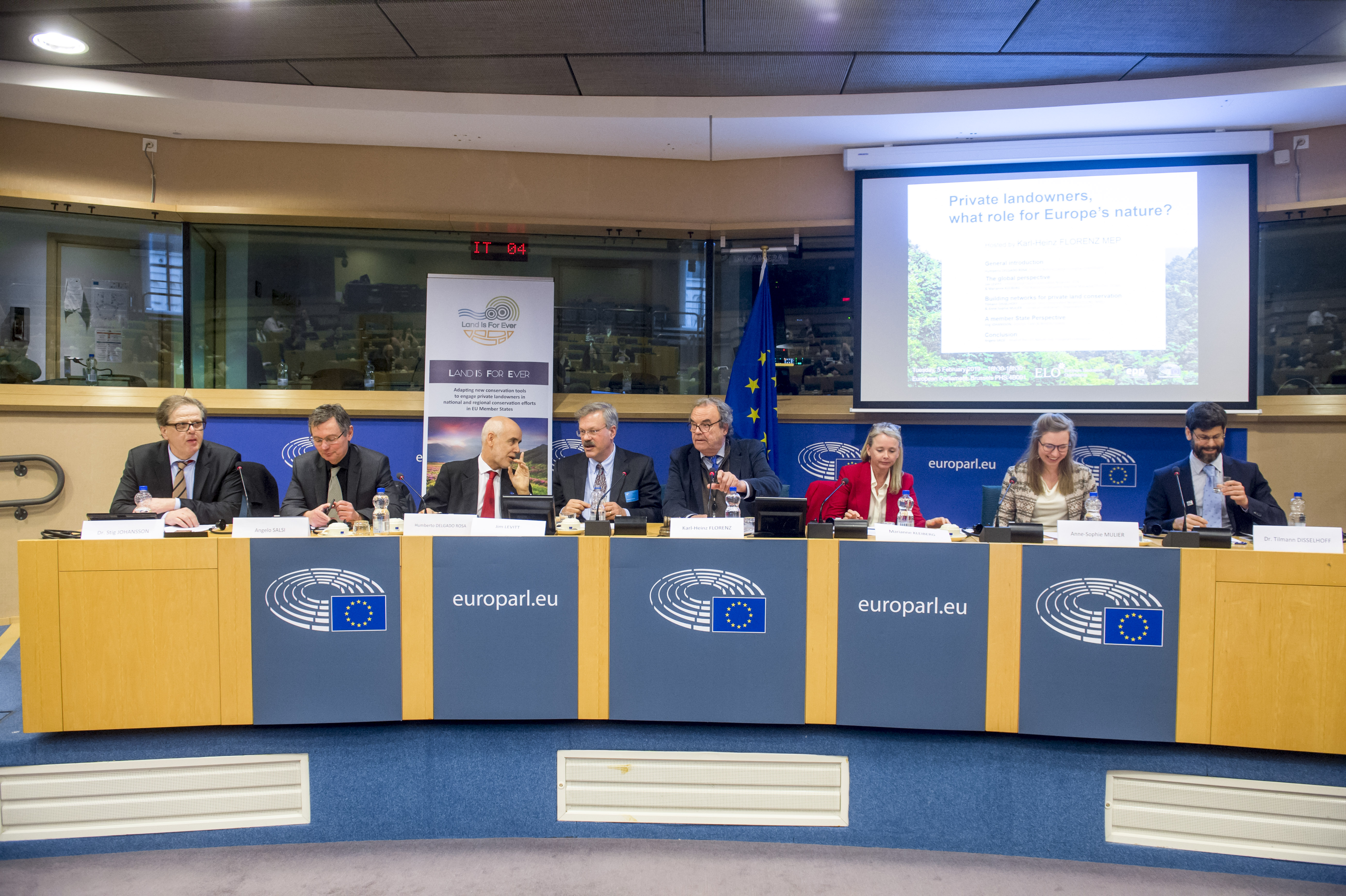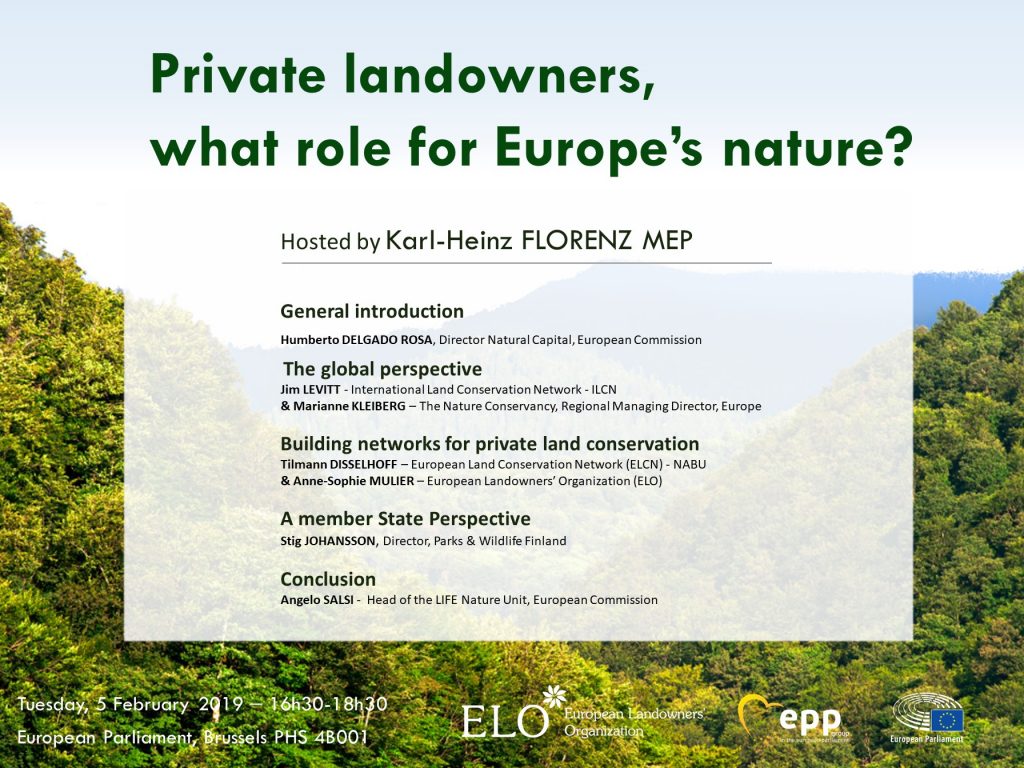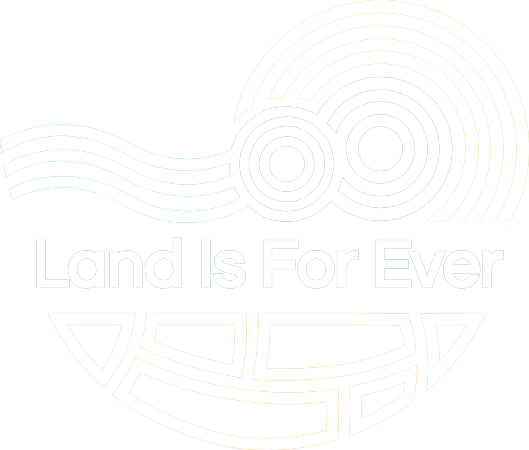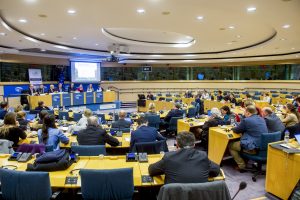
24 Apr International Conference Private Land Conservation in Europe, 5th February 2019, Brussels, Belgium
Private landowners, what role for Europe’s nature?
Professionals and partners from all across the European Union came together in Brussels beginning of February to discuss the role of
private landowners in protecting nature. Welcoming the other speakers and providing the opening remarks was Karl-Heinz FLORENZ
MEP who gave warm and enthusiastic introductions about the rest of the panel.

Daniel MONTELEONE, ELO
Humberto DELGADO ROSA, Director Natural Capital, European Commission opened the discussion by noting that nature is
slowly eroding and losing biodiversity. He proposed several ideas to help EU reach some of its 2020 goals, including trust building with private landowners, taking into account the psychology of landowners, and providing them with administrative support. He was hopeful that in 2020, future agreements would bring in more private landowners and other people to the table.
The next two panelists presented a global perspective to the issue. Jim LEVITT – International Land Conservation Network – ILCN mentioned how in the United States, the public, private, and civic (NGOs) sectors all work together to protect nature for the public good with tax deductions for conservation easements. Marianne KLEIBERG – The Nature Conservancy, Regional Managing Director, Europe was the other presenter with a global perspective. The Nature Conservancy is the largest land conservation organization in the world, with over 1400 nature preserves and around 1,5 million hectares of easements. She explained that the public and private sectors need each other for land conservancy to be successful, and that good science is important in creating appropriate policies.
The next presentation was a dual presentation with Anne-Sophie MULIER – European Landowners’ Organization (ELO) and Dr. Tilmann DISSELHOFF – European Land Conservation Network (ELCN) – NABUon building networks for private land conservation in Europe. They mentioned that most EU Member States already have a range of active voluntary programmes whereby landowners and land managers can receive payments and other benefits for participation in land management agreements for conservation purposes. Through dialogue with landowners and field tests in different EU member states, the projects intend to develop recommendations for new and more effective private land conservation policies and show how those policies can be rolled out effectively at a larger scale.
Dr. Stig JOHANSSON, Director, Parks & Wildlife Finland, gave a member state perspective. In Finland, all protective areas are managed as one, and there is one national agency that runs them all. He noted that 80 percent of Finland is forest, and half of that land is privately owned. Of the 4.6 million hectares of protected land, 95 percent is state owned. With such a large amount of nature and forest
in the country, it is important to have an effective plan. Landowners are compensated for the land that they put under conservancy, giving them incentive to be proactive. The final speaker was Angelo SALSI, head of the LIFE Nature Unit, European Commission. He hoped that future projects in the European Union are so forward thinking and he thanked the entire panel.
The final statement was one of optimism and a positive look towards the future.
Article in the Countryside Magazine: Article (page 12)



